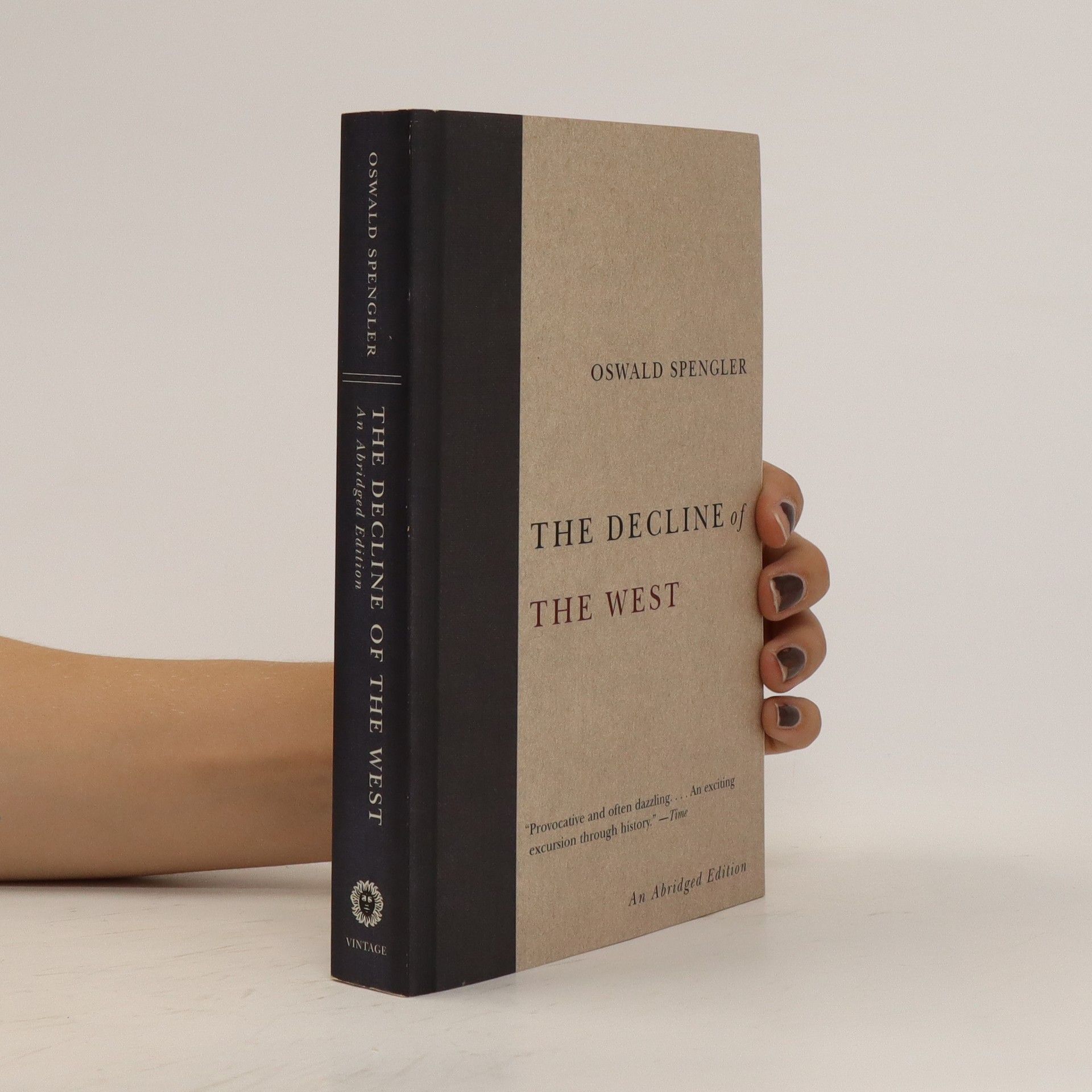Focusing on the unique mechanisms of various cultures, this volume delves into the contrasting perspectives of classical and Western civilizations. While classical culture emphasizes the present without a sense of past or future, Western culture is characterized by its engagement with memory and a forward-looking vision of the future. This exploration offers a profound understanding of how different societies develop and perceive time, marking a significant contribution to historiography.
Oswald Spengler Libros
Oswald Spengler es reconocido por su ambiciosa filosofía de la historia, que busca desvelar la naturaleza cíclica de las civilizaciones. Postula que cada cultura atraviesa fases predecibles de crecimiento, madurez y declive, de manera similar a un organismo vivo. Su obra, que se nutre de profundas perspectivas de la historia, el arte y la ciencia, ofrece una visión sombría del inevitable fin de la civilización occidental. La perspectiva apremiante de Spengler y su convicción en los ciclos culturales continúan provocando un amplio debate.







Exploring the decline of Western civilization, the book presents this phenomenon as a profound philosophical issue rather than a mere historical event. It delves into the implications of this decline, linking it to fundamental questions of existence and being. Through this lens, the author invites readers to reflect on the broader significance of cultural decline, suggesting that it encompasses essential inquiries that shape human understanding and experience.
The Decline of the West
- 480 páginas
- 17 horas de lectura
Since its first publication more than eighty years ago, The Decline of the West has ranked as one of the most widely read and talked about books of our time. A sweeping account of Western culture by a historian of legendary intellect, it is an astonishingly informed, forcefully eloquent, thrillingly controversial work that advances a world view based on the cyclical rise and fall of civilizations.This abridgment presents the most significant of Oswald Spengler’s arguments, linked by illuminating explanatory passages. It makes available in one volume a masterpiece of grand-scale history and far-reaching prophesy that remains essential reading for anyone interested in the factors that determine the course of civilizations.
Prussianism and Socialism
- 162 páginas
- 6 horas de lectura
Oswald Spengler explores the interplay between socialism, liberalism, and Prussianism, emphasizing the latter as a distinctly German ethos characterized by duty and self-sacrifice for the collective. He critiques Marxism, positioning the Prussian spirit as the embodiment of authentic socialism, highlighting its moral and cultural dimensions. This new translation invites readers to reconsider the foundations of social thought through a uniquely German lens.
Oswald Spengler's revised edition of Man and Technics highlights his prescient insights into the environmental impacts of industrialization, including species extinction. Written over ninety years ago, his predictions resonate with contemporary issues, showcasing the enduring relevance of his analysis on the relationship between humanity and technology.
The book explores the decline of Western civilization, paralleling it with the fall of Classical Culture. It presents this decline not merely as a historical event but as a profound philosophical issue that encompasses fundamental questions about existence and the nature of Being. Through this lens, the author invites readers to consider the broader implications of cultural decline and its significance in understanding human experience.
The book explores humanity's ancient past through a lens of conflict and transformation, depicting the rise and fall of civilizations as savage tribes clash with advanced societies. It details the overthrow of kings by emperors, peasant revolts, and the shifting dynamics of power across diverse landscapes. Key events include the siege of Troy and the emergence of a new cultural order influenced by the advent of Christ, highlighting the transition from paganism to modern universalism and the inevitable decline of once-dominant nations.
Oswald Spengler presents a stark critique of modern Western civilization, delving into its cultural and historical decline. Through his analysis, he explores the philosophical underpinnings and societal shifts that have led to this perceived deterioration. Spengler's work challenges readers to confront the realities of their civilization's trajectory, offering a thought-provoking perspective on its future.
Exploring the theme of cultural morphology, this volume delves into the historical dynamics of societies and the rise of "Caesarism," a concept that links dictatorship to mass democracy. Spengler argues that the previous calm has given way to more controversial and optimistic interpretations of history, challenging readers to reconsider the cyclical nature of cultural development. His analysis offers a unique perspective on the interplay between democracy and authoritarianism throughout history.
First published in 1934, the majority of this book was developed just prior to the Nazi seizure of power, with additional material which reflects on its aftermath. It assessed the decline of European power and the crisis of Western civilization in the face of conflict between the ruling class and the lower classes, arguing that only by adherence to their inherited 'Prussianism' would Germany have the solidity to be able to combat these dangers. Despite the influence of his previous writings on key Nazi figures, his criticisms of National Socialism led to the book being banned, although not before it had been widely distributed throughout Germany. This work will be of interest to students of 20th century German and European history.